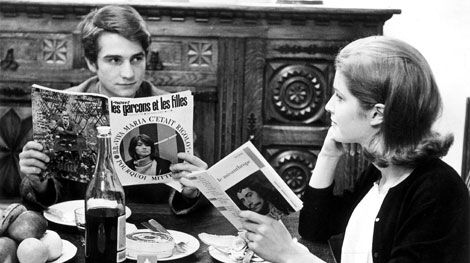My story “I Become a Woman” is a true story from real life.
But let’s think, what’s different about memoir literature.
As I wrote earlier, the ideological inspirer of my cycle of stories “The Unbearable Longing of the Flesh” is Marcel Proust.
In his novel “In the Shadow of Young Girls in Flower,” Proust touches on the comparison of fictional reality and reality extracted from memory. Proust discusses the memoirs of Saint-Simon and writes about the author’s desire to insert into his text real words and characters, which in the living integrity of the work can then turn out to be a dead weight, its weakness. When Saint-Simon creates the characteristics of his contemporaries, he does it amazingly, but when he quotes the “lovely”, in his opinion, expressions of various smart people, they sometimes seem mediocre or unclear …
So, according to Proust, the author’s desire not to commit falsehood in the describing of real events imposes certain restrictions on any memoir narration.
I can confirm that this is undoubtedly so, and I really experienced limitations when coming up with the text of my story.
Indeed, in the case of some completely fictional story, the author constructs events and heroes, feeling free to fill in his text with any details to create a more impressive fictional world, and in this case the author’s fantasy has no restrictions other than his own literary taste. A fictional hero is usually a collective image, that is, it combines the features of several real or fictional characters.
Whereas, in documentary narration, the main task of the author is not to invent the most convincing and impressive details, but to convey real details as accurately as possible, without sinning against the truth. That is, for the author of memoirs, the events of his own life are so significant that he seems to be afraid to distort them at least in some way.
By the way, sometimes real life events are so intense that they can even overshadow the author’s personality.
This is what the famous Russian philologist Dmitry Likhachev writes about one of the most famous autobiographies in the history of world literature – “Confessions” by Jean Jacques Rousseau: in a fit of desperate frankness and in an effort to diligently convey the true facts of his biography, Rousseau seemed to have overshadowed his true personality, his real mental and spiritual life with an external outline of events, and thus in his autobiography the great thinker was turned into a kind of some fictional character.
Of course, when it comes to such a great thinker and public figure like Rousseau, such a “replacement” of the hero can be disappointing for the reader who expects to see some truly magnificent image in the autobiography of his idol.
But in the case of my own memoirs, curious events of the life can be interesting in themselves. 🙂
So, all of the above does not mean at all that my story is poor in events. And moreover – in terms of personal reflection on the events that have taken place, the heroine’s emotions are really extra genuine.
One of my beta readers – an Englishman – asked me in surprise:
did all this really happen to me in reality?
Another beta reader of mine, an American – who, by the way, is a writer himself – said that he was most interested exactly in stories from real life.
This is why, as rhey say, sometimes life is more convoluted than any fiction.
So… Do not forget to download my novel “I Become a Woman” on free days from 28 to 29 November.




